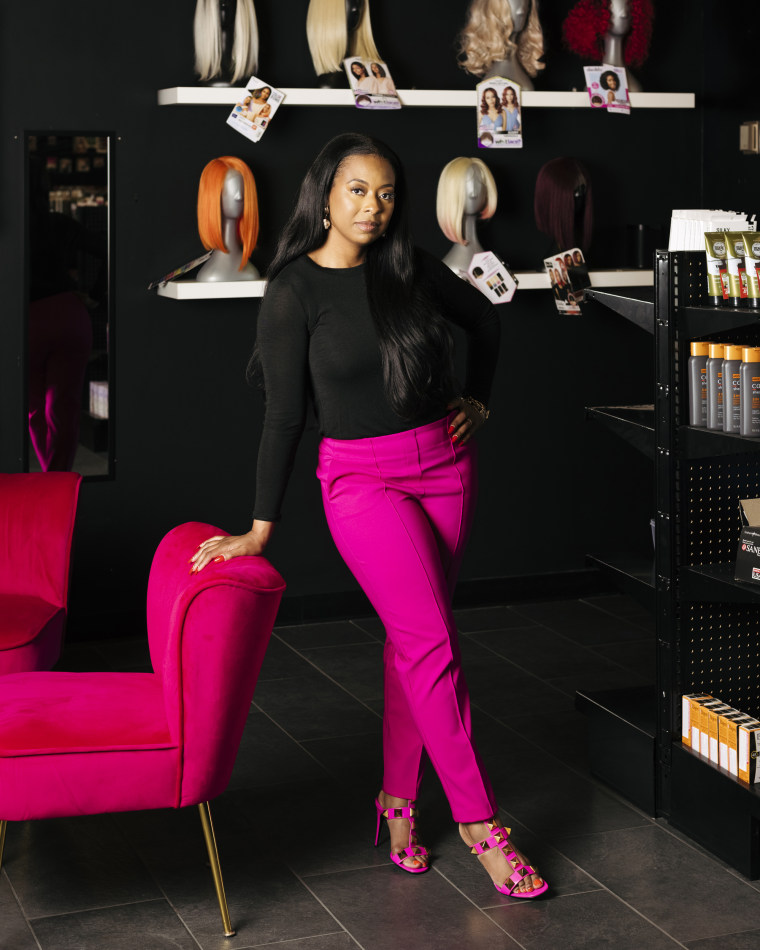With its chandeliers and pink couches, Pink Noire, a Black-owned hair and beauty supply store in Memphis, Tennessee, seems a world away from the major industries caught up in the global trade war.
But owner Chasity Monroe is bracing for the Trump administration’s trade policies to hit her shelves. Tariffs have hiked the import fees on hair products she carries from overseas — by roughly 145% in the case of Chinese-made goods.
“It’s just been really scary for a small business that’s not been open long,” Monroe said.
For a generation of Black girls, their first brush with makeup was the fruity-scented or shiny, clear squeeze-tube lip gloss they bought at the local beauty supply shop. It has been the place to prep for wash day as they transitioned to natural hair in their adulthood. Korean Americans own many of the stores, but Black ownership is slowly growing.
In the United States, Black hair care is estimated to be a more than $2.5 billion industry. And foreign exporters are critical to that engine, providing everything from the wefts used in sew-ins to ingredients for ethnic hair care products, like shea butter imported from Ghana and elsewhere.
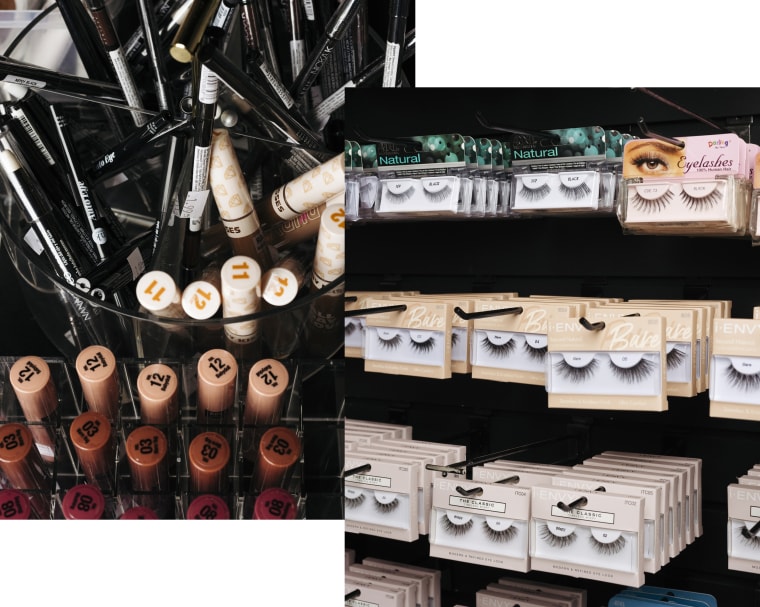
For many in the industry, that means the trade war is hitting close to home, causing ripple effects that threaten to squeeze small businesses.
Because Monroe, 40, buys many of her products directly from vendors based in China, she's responsible for the taxes when they enter the country, and she has already seen some suppliers begin to increase prices. She will have to pass most of those costs on to customers, who may be unwilling or unable to pay, she said.
Rather than sell synthetic braiding hair for $3 to $5 per pack, Monroe offered as an example, she might need to sell it for what she described as an “unheard of” price of $10 to $12.
Some vendors have encouraged buyers to take advantage of the 90-day pause on certain tariffs on countries like India, Cambodia and Malaysia, which are also major players in the hair extension industry, to stock up on inventory.
But many mom-and-pop operations aren’t in the position to do that, said an expert on economic demography, Trevon Logan, an economist at Ohio State University.
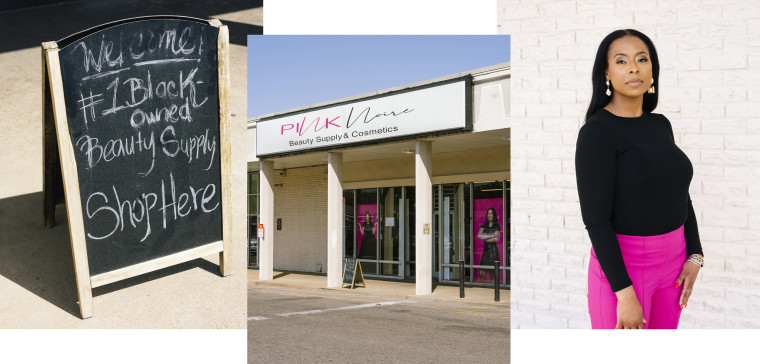
“We know already that many Black businesses don’t have the banking relationships that would allow them the access to capital and the liquidity to go out and make large purchases so that they could actually have inventory,” Logan said, adding that small stores also don’t have negotiating power like their big-box competitors.
At a moment when Black-owned brands have earned shelf space at major retailers like Sephora, tariffs could bring setbacks.
“The supply chain is a huge barrier,” said Tomi Talabi, founder of The Black Beauty Club, which holds events for beauty enthusiasts and entrepreneurs. “Tariffs only raise the cost of entry: packaging, ingredients, shipping — all go up.”
When Monroe opened her store in 2022, it was out of a desire to create a welcoming space.
Too often, Monroe said, beauty products were sold in warehouse-like buildings with little thought to how products were arranged. And while big-box retailers might carry brands for textured hair, their offerings aren't as expansive as those of specialized shops where inventory ranges from leave-in conditioners to everything needed to make a wig.
At Pink Noire, she employs licensed cosmetologists as beauty advisers. The shop offers facials, waxing and makeup services. It’s also a social hub, with Wine Day Wednesdays and Champagne Saturdays.
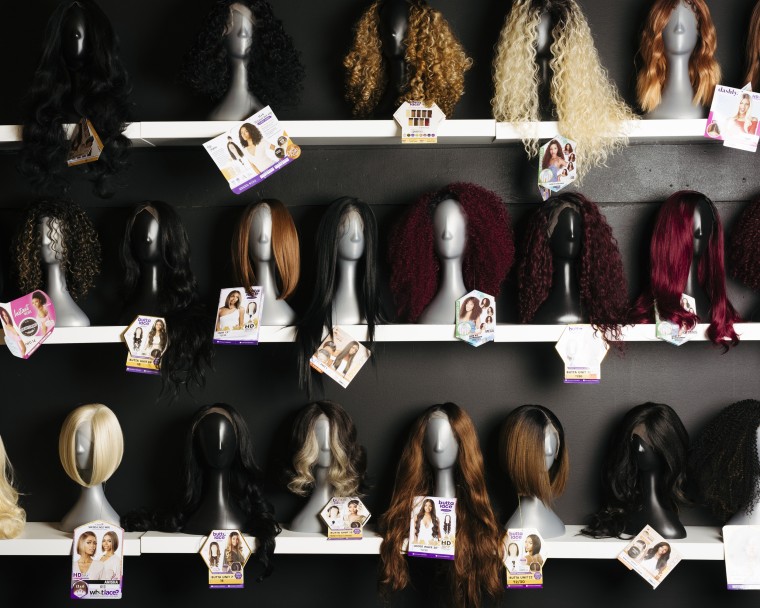
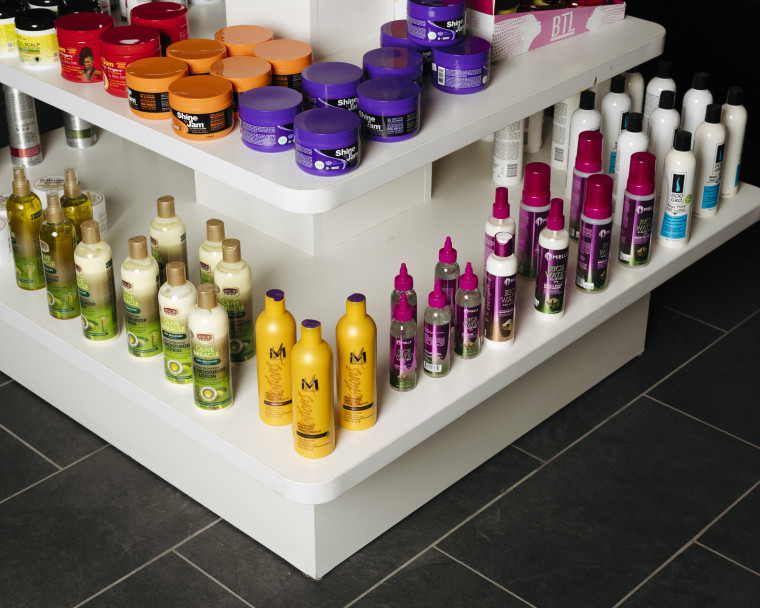
Monroe said she hasn’t increased her prices yet but fears it will be unavoidable once she places orders with the new tariffs in effect. She also owns a small hair care line produced in China and has tried to explore the possibility of shifting production of her products to the United States. Monroe said a Memphis-based producer told her she would need to order a minimum of 10,000 units, which isn't workable for her business.
Just outside Nashville, LaWanda Majors, 54, owner of MajorStyllz Beauty Supply, said recently that a “Brazilian bundle,” a popular style of human hair extensions she buys from a vendor whose supply is from overseas, was going from $125 to $175. Majors, who opened the shop with her late sister, Sherita, in 2023, said it was already a struggle to stay afloat.
Right now, her margins are so tight that she’s the sole employee. Majors said she has recently marked down everything in the store to bring in the money she would need to buy more inventory as prices go up.
“I’m just stuck right now,” she said. “I just put it in God’s hands.”
Beauty customers have also been paying attention to rising prices — and posting their concerns on TikTok.
“I know they talk about everything else: groceries, necessities like toilet paper and other stuff; they talk about cars going up. But I wanna know about the hair products,” a Louisiana-based woman said.
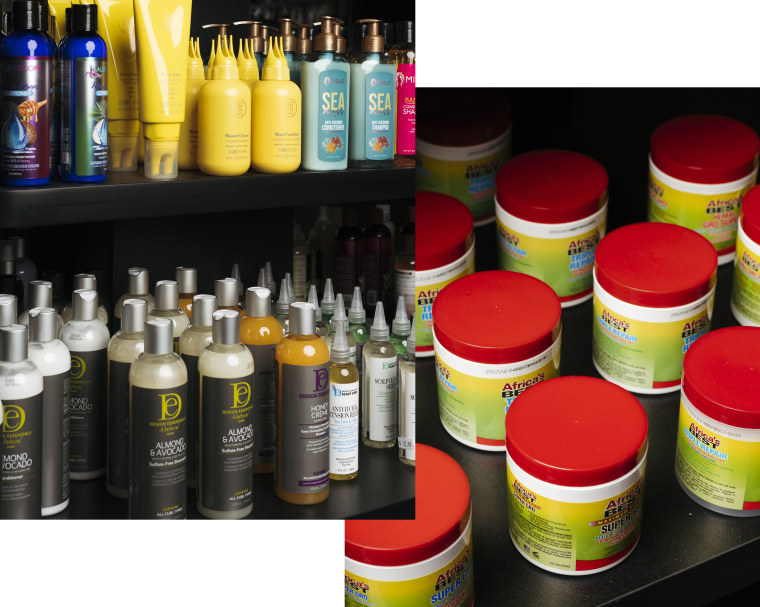
It's a question many Black women share, driven by what can be a complex, frustrating and empowering experience with their hair, one that may carry implications for how they move through their professional and personal lives.
“I’ll tell you as a Black woman, hair is nonnegotiable for me,” said Kortlynn Jenaé Johnson, 33, an executive assistant for a New Orleans-based charter school system, who wears her hair natural and frequents beauty supply shops for items like shampoos and conditioners.
Back in Memphis, Monroe is hopeful that even if she has to raise prices, customers will stay loyal. She referred to data that showed that during economic uncertainty, consumers still treat themselves to pick-me-ups like nail polish and lip gloss.
When it comes to the cost of eggs, Monroe said, “people are outraged. They’re like, ‘I’m just going to buy chickens.’ But we can’t just buy chickens when it comes to the beauty business.”
